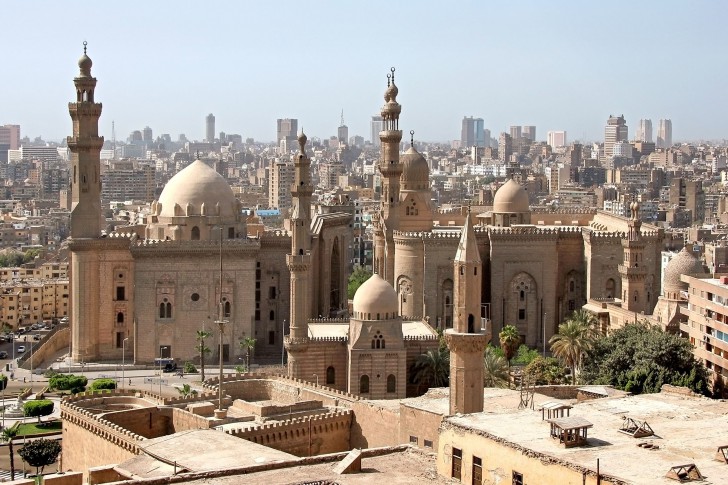
Religion in Egypt controls many aspects of social life and is endorsed by law. Egypt has an area of 370,308 square miles (959,090 km2) and a population of over 80 million, of whom almost 90 percent were estimated to be Sunni Muslims. Shi’a Muslims constitute less than 1 percent of the population. Estimates of the percentage of Christians range from 10 to 20 percent, or between 8 and 15 million (though estimates vary), the majority of whom belonged to the Coptic Orthodox Church.
Other Christian communities include the Armenian Apostolic, Roman Catholic (Armenian, Chaldean, Greek, Melkite, Roman, and Syrian Catholic), Maronite, and Orthodox (Greek and Syrian) churches. An evangelical Protestant community, established in the middle of the 19th century, included 16 Protestant denominations (Presbyterian, Episcopal/Anglican, Baptist, Brethren, Open Brethren, Revival of Holiness (Nahdat al-Qadaasa), Faith (Al-Eyman), Church of God, Christian Model Church (Al-Mithaal al-Masihi), Apostolic, Grace (An-Ni’ma), Pentecostal, Apostolic Grace, Church of Christ, Gospel Missionary (Al-Kiraaza bil Ingil), and the Message Church of Holland (Ar-Risaala)). There are also followers of the Seventh-day Adventist Church, which was granted legal status in the 1960s. There are small numbers of Mormons and Jehovah’s Witnesses, but the Government does not recognize either group. The non-Muslim, non-Coptic Orthodox communities ranged in size from several thousand to hundreds of thousands. The number of Baha’is estimated at 2,000 persons. The Jewish community numbers fewer than 200 persons.
Christians are dispersed throughout the country, although the percentage of Christians is higher in Upper Egypt (the southern part of the country) and some sections of Cairo and Alexandria.
There are many foreign religious groups, especially Roman Catholics and Protestants who have had a presence in the country for almost a century. These groups engaged in education, social, and development work.1
The Egyptian constitution, under Article 45, provides for freedom of belief and the practice of religious rites to the three Abrahamic religions (Islam, Christianity and Judaism), but only those three, although the Government places restrictions on these rights in practice. Islam is the official state religion, and Shari’a (Islamic law) is the primary source of legislation.2
The Constitutional Declaration of March 2011 and the new constitution ratified on December 22 provide for some freedom of religion, but certain constitutional provisions, laws, and government policies and practices limit that freedom. The government’s respect for religious freedom remained poor during the year. While the 2012 constitution stipulates that “freedom of belief is an inviolable right,” some provisions provide less protection than the previous constitution. The 2012 constitution requires that the government protect the right to practice religious rituals and establish places of worship only for adherents of Islam, Christianity, and Judaism. It also makes these rights conditional by adding the ambiguous clause, “as regulated by the law.” Like previous constitutions, it stipulates that Islam is the official religion of the state and the principles of Sharia (Islamic law) are the primary sources of legislation. Some interpret Article 4 of the new constitution as granting Al Azhar, the country’s preeminent center of Sunni Islamic jurisprudence, the authority to define and interpret Sharia; others believe the constitution leaves this authority primarily with the courts. The new constitution explicitly prohibits offending or criticizing religious prophets and messengers, whereas in the past demeaning or defaming Islam, Christianity, or Judaism was prohibited only by law. Prosecutors actively pursued criminal cases against those whose statements or actions were alleged to be blasphemous or denigrating of religion.3
For more information, the links below may be useful.